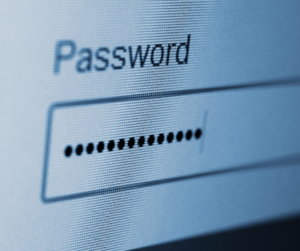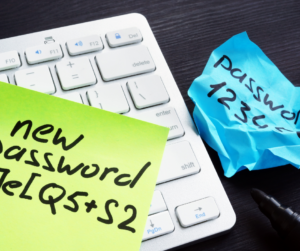Are you tired of constantly changing your passwords and wondering if it’s really necessary? Well, here’s an interesting statistic for you: cyber threats are becoming increasingly sophisticated in today’s digital age. That’s why it’s crucial to prioritize the security of your online accounts. In this article, we’ll delve into the question of how often you really need to update your passwords and explore the reasons behind it. So, let’s dive in and discover the best practices for keeping your accounts secure.
The Importance of Regular Passwords Update
Regular password updates are crucial for maintaining the security of your personal information and preventing unauthorized access to your accounts. Many people underestimate the importance of regularly updating their passwords, but it is a simple yet effective way to enhance your online security. By regularly updating your passwords, you can minimize the risk of your accounts being hacked or compromised. It is recommended to update your passwords at least every three months or whenever there is a security breach or suspicion of unauthorized access. When creating new passwords, make sure to follow password strength tips such as using a combination of uppercase and lowercase letters, numbers, and special characters. Additionally, consider using two-factor authentication for an extra layer of security. To keep track of your passwords, consider using a password manager, which securely stores and generates strong passwords for you. Lastly, it’s important to debunk common password security myths, such as the belief that longer passwords are always stronger. Regularly updating your passwords is a simple yet effective way to enhance your online security and protect your personal information from unauthorized access.
Factors to Consider When Determining Password Update Frequency
To determine how often you should update your passwords, consider the following factors and make an informed decision:
Benefits of using a password manager:
- Simplifies the process of managing and updating passwords.
- Generates and stores strong, unique passwords for each account.
- Enhances security by encrypting and protecting your password data.
Impact of password complexity on security:
- Use a combination of uppercase and lowercase letters, numbers, and special characters.
- Avoid using easily guessable information like birthdays or pet names.
- Longer passwords are generally more secure.
Two-factor authentication advantages:
- Adds an extra layer of security by requiring a second factor, such as a code sent to your phone.
- Protects against unauthorized access even if your password is compromised.
Password update frequency for different online accounts:
- High-risk accounts like online banking or email should be updated more frequently, at least every 3 months.
- Lower-risk accounts like social media or online shopping can be updated every 6-12 months.
The role of biometric authentication in password security:
- Biometric authentication, such as fingerprint or facial recognition, can provide a more secure and convenient way to authenticate.
- It can be used in combination with passwords to strengthen security.
Common Password Mistakes to Avoid
When creating passwords, be sure to avoid common mistakes like using easily guessable information or reusing passwords for multiple accounts. These mistakes can compromise the security of your accounts and put your personal information at risk. One common mistake to avoid is using weak passwords that can be easily guessed by hackers. It is important to create passwords that are strong and difficult to guess by incorporating a combination of uppercase and lowercase letters, numbers, and special characters. Another mistake to avoid is not using a password manager. Password managers can help you create and store strong, unique passwords for each of your accounts, eliminating the need to remember multiple passwords. Additionally, enabling two-factor authentication adds an extra layer of security to your accounts by requiring a second form of verification, such as a code sent to your phone. Practicing good password hygiene and avoiding these common password vulnerabilities will help protect your accounts and personal information from unauthorized access.
Change My Password
Tired of dealing with password changes? Consider using tools that save your password, make sure you are using adequate protection for your security needs so your master passwords aren’t compromised.
Contact us today to talk about how we can get your business and personal accounts secured!
